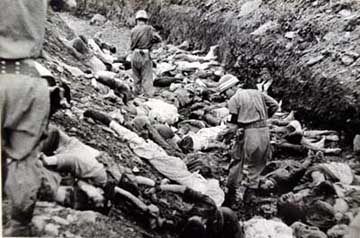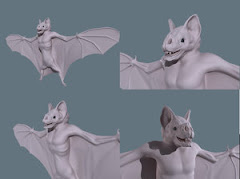Story Synopsis-
Since the "Jeju Massacre" (제주도민 학살 사건) of South Korea, which claimed the lives of more than 60,000 people more than fifty years ago, their bodies were sealed in the volcanic cave of Mount Halla. Decades later, some of these bodies were mystically resurrected as vampires. The bitter feud between two mortal factions became immortal: The Regiments vs. The Guerrillas.
Fifty years later today, we meet Han Mirae, a young Korean girl who's caught in a love triangle: Jackie Chang, a swashbuckling vampire slayer from Singapore, and Shin Taewoo a powerful vampire of the Guerillas. Then meet Lee Hyunsuk, the opal-eyed vampire of the Regiments who abducts Mirae in order to set a trap to kill the other two.
Can Taewoo or Jackie save the girl in time? And who is Mirae's real love?
The streets, districts, buildings and cuisines mentioned in this book are actual, and the description of the epic ‘Jeju Massacre’ is based on a true historical account. Otherwise, the story is largely fictional, especially the vampires. There certainly isn’t any vampire on Jeju island, and this book should not deter any holiday-maker or tourist from travelling to Jeju. In my opinion, Jeju is definitely one of the best tourist destinations in South Korea. The notion of vampires in this book is purely for entertainment value, and not to be taken as a gospel.
I’ve been learning Korean for almost five years, and until now it’s still a knotty problem for me. You need a very good skill of listening comprehension in order to make out what a native is actually talking about. Fortunately, with a good background in the Chinese language, it helps to make the learning of Korean language much easier. If you’re good in Japanese too, well, then I’d say you’ve got half the battle won. Why is that so?
Because Korean shares similar grammar with Japanese, while 70% of its vocabulary is borrowed from neighbouring China, and now many English words have penetrated the Korean lexicon too. Hence they’ve got Konglish, which is Korea’s equivalent of Singapore’s Singlish.
Having said that, however, Korean is largely written in hangeul, the alphabet developed under King Sejong’s reign in the 15th century. The way I see it, the Korean script is one of the most systematic and consistent alphabets used today.
Hangeul consists of only 24 characters, of vowels and consonants, which aren’t that difficult to learn. However, the formation of words using hangeul are quite different form the way that Western alphabets are used to form words.
The emphasis is on the formation of a syllable so that it resembles a Chinese character. Thus, the first syllable of the word ‘hangeul’ (한) is formed by an ‘h’ (ㅎ) in the top left corner, an ‘a’ (ㅏ) in the top right, followed by an ‘n’ (ㄴ) at the bottom. As a result, the full syllabic formation forms into some sort of a box, which looks like this: 한.
Pronounciation
-Vowels
ㅏ a as in the ‘a’ in ‘are’
ㅑ ya as in ‘yard’
ㅓ eo as in ‘of’
ㅕ yeo as in ‘young’
ㅗ o as in ‘go’
ㅛ yo as in ‘yo-yo’
ㅜ u as in ‘flute’
ㅠ yu as in the word ‘you’
ㅡ eu as in the ‘oo’ in ‘book’
ㅣ I as in the ‘ee’ in ‘sheep’
Combined Vowels
ㅐ ae as in the ‘a’ in ‘hat’
ㅒ yae as in the ‘yeah’ in ‘oh yeah!’
ㅔ e as in ‘ten’
ㅖ ye as in ‘yes’
ㅘ wa as in ‘wander’
ㅙ wae as in ‘wax’
ㅚ oe as in ‘way’
ㅝ wo as in ‘won’
ㅞ we as in ‘wet’
ㅟ wi as in the word ‘we’
ㅢ ui as in ‘u’ plus ‘i’
Single Consonants
ㄱ k/g
ㄴ n
ㄷ t/d
ㄹ r/n
ㅁ m
ㅂ b
ㅅ s/t
ㅇ nasal sound of ‘ng’ or silent word.
ㅈ j/t
ㅊ ch/t
ㅋ kh
ㅌ t
ㅍ p
ㅎ h/ng
Double Consonants
Double consonants are pronounced with more stress than their single consonant counterparts.
ㄲ kk/gg
ㄸ dd/tt
ㅃ bb/pp
ㅆ ss/t
ㅉ jj/tch
After familiarising yourself with hangeul, the next step is to get yourself acquainted with the way the language is being used. You can achieve this by listening to the way Koreans pronounce words, phrases, and sentences during a conversation, and to try and repeat their pronounciation. You can acquire this by watching Korean dramas and movies, listening to Korean songs. But the best method is still to mingle and make friends with Koreans, and practise the language with them. If you’ve decided to pick up this language, I wish you all the best and happy learning!
Since the "Jeju Massacre" (제주도민 학살 사건) of South Korea, which claimed the lives of more than 60,000 people more than fifty years ago, their bodies were sealed in the volcanic cave of Mount Halla. Decades later, some of these bodies were mystically resurrected as vampires. The bitter feud between two mortal factions became immortal: The Regiments vs. The Guerrillas.
Fifty years later today, we meet Han Mirae, a young Korean girl who's caught in a love triangle: Jackie Chang, a swashbuckling vampire slayer from Singapore, and Shin Taewoo a powerful vampire of the Guerillas. Then meet Lee Hyunsuk, the opal-eyed vampire of the Regiments who abducts Mirae in order to set a trap to kill the other two.
Can Taewoo or Jackie save the girl in time? And who is Mirae's real love?
The streets, districts, buildings and cuisines mentioned in this book are actual, and the description of the epic ‘Jeju Massacre’ is based on a true historical account. Otherwise, the story is largely fictional, especially the vampires. There certainly isn’t any vampire on Jeju island, and this book should not deter any holiday-maker or tourist from travelling to Jeju. In my opinion, Jeju is definitely one of the best tourist destinations in South Korea. The notion of vampires in this book is purely for entertainment value, and not to be taken as a gospel.
I’ve been learning Korean for almost five years, and until now it’s still a knotty problem for me. You need a very good skill of listening comprehension in order to make out what a native is actually talking about. Fortunately, with a good background in the Chinese language, it helps to make the learning of Korean language much easier. If you’re good in Japanese too, well, then I’d say you’ve got half the battle won. Why is that so?
Because Korean shares similar grammar with Japanese, while 70% of its vocabulary is borrowed from neighbouring China, and now many English words have penetrated the Korean lexicon too. Hence they’ve got Konglish, which is Korea’s equivalent of Singapore’s Singlish.
Having said that, however, Korean is largely written in hangeul, the alphabet developed under King Sejong’s reign in the 15th century. The way I see it, the Korean script is one of the most systematic and consistent alphabets used today.
Hangeul consists of only 24 characters, of vowels and consonants, which aren’t that difficult to learn. However, the formation of words using hangeul are quite different form the way that Western alphabets are used to form words.
The emphasis is on the formation of a syllable so that it resembles a Chinese character. Thus, the first syllable of the word ‘hangeul’ (한) is formed by an ‘h’ (ㅎ) in the top left corner, an ‘a’ (ㅏ) in the top right, followed by an ‘n’ (ㄴ) at the bottom. As a result, the full syllabic formation forms into some sort of a box, which looks like this: 한.
Pronounciation
-Vowels
ㅏ a as in the ‘a’ in ‘are’
ㅑ ya as in ‘yard’
ㅓ eo as in ‘of’
ㅕ yeo as in ‘young’
ㅗ o as in ‘go’
ㅛ yo as in ‘yo-yo’
ㅜ u as in ‘flute’
ㅠ yu as in the word ‘you’
ㅡ eu as in the ‘oo’ in ‘book’
ㅣ I as in the ‘ee’ in ‘sheep’
Combined Vowels
ㅐ ae as in the ‘a’ in ‘hat’
ㅒ yae as in the ‘yeah’ in ‘oh yeah!’
ㅔ e as in ‘ten’
ㅖ ye as in ‘yes’
ㅘ wa as in ‘wander’
ㅙ wae as in ‘wax’
ㅚ oe as in ‘way’
ㅝ wo as in ‘won’
ㅞ we as in ‘wet’
ㅟ wi as in the word ‘we’
ㅢ ui as in ‘u’ plus ‘i’
Single Consonants
ㄱ k/g
ㄴ n
ㄷ t/d
ㄹ r/n
ㅁ m
ㅂ b
ㅅ s/t
ㅇ nasal sound of ‘ng’ or silent word.
ㅈ j/t
ㅊ ch/t
ㅋ kh
ㅌ t
ㅍ p
ㅎ h/ng
Double Consonants
Double consonants are pronounced with more stress than their single consonant counterparts.
ㄲ kk/gg
ㄸ dd/tt
ㅃ bb/pp
ㅆ ss/t
ㅉ jj/tch
After familiarising yourself with hangeul, the next step is to get yourself acquainted with the way the language is being used. You can achieve this by listening to the way Koreans pronounce words, phrases, and sentences during a conversation, and to try and repeat their pronounciation. You can acquire this by watching Korean dramas and movies, listening to Korean songs. But the best method is still to mingle and make friends with Koreans, and practise the language with them. If you’ve decided to pick up this language, I wish you all the best and happy learning!































3 comments:
Hi,
I facebook linked this.
hi, i've bought your first book "curse of jeju island" 1 yr ago. when is the second book coming out? can you email me when its going to publish? thx;)
jeslingan81@hotmail.com
I congratulate, a brilliant idea
Post a Comment